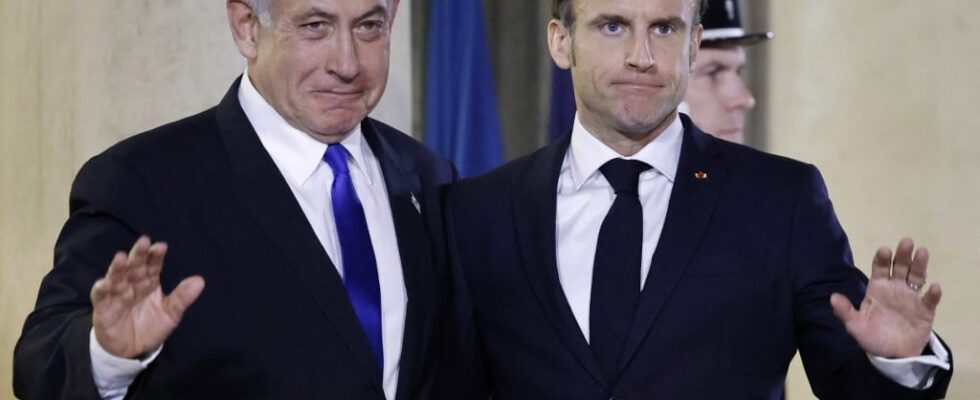Between Emmanuel Macron and Benyamin Netanyahu, the break seems well and truly complete. In an interview with the CNews television channel this Wednesday evening, the Israeli Prime Minister once again accused the French head of state. “I was extremely disappointed by Emmanuel Macron. He supported us at the start of the war but, little by little, I saw that he was changing his position and that he was taking positions that are against our common interests. He put an embargo on Israel, while Iran has not put an embargo on Hezbollah or Hamas,” declared the leader of the Hebrew state.
Between the two leaders, tensions have only increased in recent weeks. First there were Emmanuel Macron’s comments on October 5, two days before the first anniversary of the Hamas terrorist attacks. The French president had called for an end to arms exports to Israel used in Gaza, while Paris is trying to use all its weight to stop the fighting in the Middle East. “If we call for a ceasefire, consistency means not providing the weapons of war,” he declared on Franceinter. These comments were very poorly received in Israel, described as a “shame” by Netanyahu, despite Paris’s desire to ease tensions by publishing a statement in the evening affirming that France “is Israel’s unwavering friend.”
But two weeks later, again, this time with comments from the French head of state reported from the Council of Ministers on October 15 by several participants. “Benyamin Netanhayou must not forget that his country was created by a UN decision. And therefore this is not the time to free ourselves from UN decisions,” said Emmanuel Macron. Enough to provoke an immediate reaction from Israel. “A reminder to the President of France: it was not the UN resolution that established the State of Israel, but rather the victory achieved in the War of Independence with the blood of heroic fighters, many of whom were survivors of the Holocaust – notably of the Vichy regime in France”, reacted the head of the Israeli government in a press release.
All this, without forgetting the very tense telephone discussions between the two leaders, while Emmanuel Macron calls – without success – Benjamin Netanyahu to achieve a ceasefire as quickly as possible in Lebanon and Gaza.
Timing that says a lot
In this context, Benyamin Netanyahu’s interview on the CNews channel, the second he gave to French television after LCI on May 30, is also revealing of the communication battle taking place between the Israeli Prime Minister and the French president. Netanyahu also wanted to emphasize the struggles that Israel and France are waging together. “This is a war of civilization against barbarism,” he said, comparing Hamas terrorists to “Nazis.” “We fight them in your name, our victory is your victory. […] They killed a French priest, Father Hamel, Samuel Paty, they committed the Bataclan… These people would kill you all if they could,” he continued. Before a little dig at Emmanuel Macron: “I think that the French understand, but it is the president of France who must understand it.
Beyond the words used, the timing of this interview, on the eve of the opening of the summit on Lebanon by Emmanuel Macron in Paris, is enough in itself to demonstrate the rupture between the two leaders. An event where 70 participants will be present, in the presence of Lebanese Prime Minister Najib Mikati, Lebanese Foreign Ministers Abdallah Bou Habib, German Annalena Baerbock, Canadian Mélanie Joly, and for the European Union Josep Borrell, or even a fifteen international organizations.
But Israel, like Iran, was not invited. A message also sent by Emmanuel Macron: in his eyes, Benjamin Netanyahu, who still refuses to stop the bombs in Gaza and Lebanon or to initiate de-escalation in the Middle East, is no longer the preferred interlocutor to achieve a diplomatic solution.
